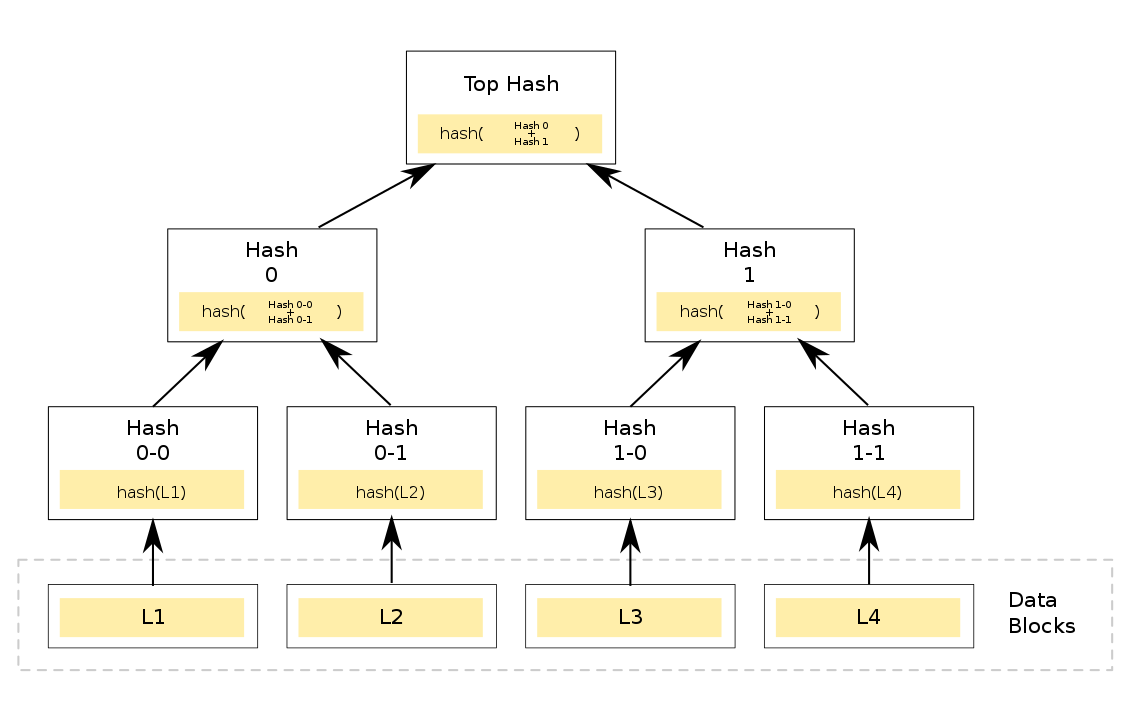Many global companies have already implemented Blockchain-as-a-Service (BaaS) into their cloud offerings. There isn’t any question that offering BaaS can serve as a differentiator for many companies. Not to mention, blockchain can disrupt many industries from music to real estate. But, what is blockchain and how will it impact cloud computing over the coming decade? Since knowledge, and data, are your company’s currency, it’s critical to ensure your data is protected. Blockchain offers a secure medium for exchanging and storing data.
Across a peer-to-peer network, the blockchain records all transactions through a decentralized ledger. In simpler terms, blockchain is the technology behind encrypted digital currencies such as Bitcoin. In essence, blockchain technology stores and moves blocks of cryptographically-validated data so that users cannot corrupt or modify these types of files. In addition, blockchain technology creates a transparent paper trail which anyone can see, but they cannot change any aspect. Without blockchain technology, many cryptocurrencies would cease to exist.
In 1979, Ralph Merkle patented the hash tree, or Merkle Tree. The objective was to handle and verify data within a peer-to-peer network of computers and ensure false data wasn’t being sent. This was the first version of contemporary blockchain technology. Today, blockchain works to record every data exchange which is called a transaction. Furthermore, every verified transaction is called a “block,” hence the name.

We must also get into the concept of cryptographic keys, which sets your digital signature with both a private and public key. Every transaction has a public key, a digital signature, a timestamp, and a unique ID.
Since blockchain utilizes a peer-to-peer network, its ledger content can be stored in many varied locations. As a result, the data is extremely difficult to track or destroy. While modern-day blockchain technology was created as the support system for managing cryptocurrency transactions, it has the potential to do so much more.
In order to offer blockchain availability for all, setup needs to be easy and straightforward. Without cloud computing, setting up a unique company blockchain would require major development capabilities and a lot of infrastructure investment. Yet, blockchain is being hailed as the next great disruptor in the cloud computing space. It offers a native digital medium for value, which is why an increasing number of banks are planning to implement blockchain technologies within the next few years.
You see, the real power of blockchain can be unleashed through its universal application. One of its strongest attributes is security. Every transaction is captured and validated across an entire network. And, every verified user can see and agree on this data. Yet, the data cannot be altered. In terms of cloud computing, one of the most pressing concerns has always been security. How can cloud companies protect your virtual data?
If knowledge is power, are you giving your power away to the cloud? Now that blockchain technologies are becoming more accessible, it can dramatically change the relationship companies have with cloud providers. When end users see their data being protected and supported by an underlying blockchain infrastructure, it will transform the relationship paradigm with cloud computing.
Within the next decade, the question won’t be “How can blockchain be used,” instead the question will be “How can’t blockchain be used?” Blockchain can share, endorse, and validate almost any value point such as votes, intellectual property, titles, deeds, music, art, scientific discoveries, and more.
In the coming decade, more companies are expected to embrace blockchain and cloud computing for all its potential. Since it validates transactions, you will see a decreased need for the middle man whether it is a real estate agent or even a streaming music service.
To illustrate, music can be encoded in the blockchain and archived on the cloud once purchased. As a result, there will be no need for music companies or streaming services such as Apple or Pandora. The same can be done with ebooks or any other virtual offering. Furthermore, you can purchase stocks directly in the blockchain eliminating the need for stockbrokers.
Now that blockchain as a service (BaaS) is available, organizations can rent a blockchain infrastructure in the cloud – hosted by the provider of their choice. Plus, BaaS can be used to manage smart contracts, contract execution, data storage, documentation tracking, and more. Another example, in the automotive industry, blockchain can be used to store data on a car’s services, mileage, and history. The same can be done in real estate where all property data can be stored in a secure and central location.
(Click to expand – Credit to FlureeDB)
In the next decade, expect to see a merging of IoT with AI, cloud computing, and blockchain technologies. More devices are being connected to the Internet every day. From your refrigerator to your car to your TV, to your thermostat–the connections are being made. So, your refrigerator can tell you when you’re running low on an item and even order it for you. Your thermostat can be controlled from a remote, mobile device.
And, your devices can communicate with you — and each other — to track and count everything to reduce time, cost, and waste. The only question is whether your collected data is secure, and that is where blockchain will be applied to ensure the trustworthiness of IoT networks. Since private blockchains can be built within cloud networks, the possibilities are endless.
According to the World Economic Forum, around 10 percent of the global GDP may be stored in blockchain technology. If you want to stay ahead of the curve, now is the time to learn more about–and implement blockchain.
By Jennifer Klostermann





